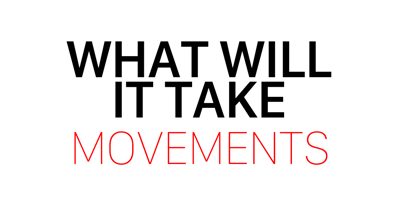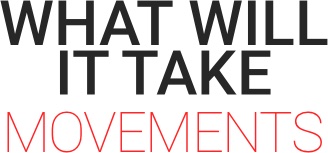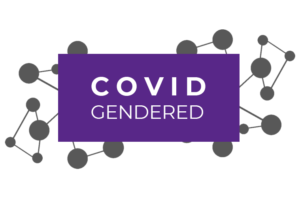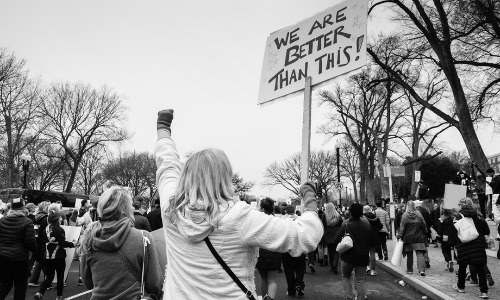By Marianne Schnall
Even though the COVID-19 pandemic is viewed primarily as a global health crisis, having claimed over 130,000 lives worldwide, we are only beginning to understand how this pandemic will deeply impact our nation economically, politically, culturally and socially—and how those far-ranging impacts are dependent on the multitude of identities, situations and communities that make up our country. For example, we are seeing with horror the nurses, doctors and other frontline workers who are forced to work unprotected and falling sick, the low income workers who were already struggling who are now out of a job (over 22 million people have filed for unemployment) waiting on long lines at food banks across the country, or the recent concerning reports that coronavirus is killing black and Latino people in places like New York City at twice the rate that it is killing white people, a racial disparity which reflects longstanding economic inequalities and differences in access to health care.
The truth is that in times of crisis, disparities like these become even more apparent and exacerbated, which includes the disproportionate effects this pandemic is having on women and girls. From the increased reports of domestic violence as survivors are forced to lockdown with their abusers, to the affronts and restrictions on reproductive healthcare to the challenges of working women struggling to balance work and family, to the fact that 85% of all nurses, 75% of primary caregivers, and 62% of minimum and low-wage workers are women—women’s lives are especially impacted by this pandemic. There is a need to look at the global crisis through a gendered lens, to create awareness so we can then address these issues and create change. In this spirit, I was proud to help launch a new platform called COVID Gendered, a digital newsletter and online platform which is aggregating content, actions and resources around the interconnection of gender and the pandemic. We hope to put a spotlight on the ways COVID-19 affects people of different genders differently; how women are stepping up to lead, support each other, and help their broader communities; and how this crisis is forcing us to look at our broken systems and reinvent them in more connected, equitable, and healthy ways.
To give some context to the many different ways this pandemic is affecting women and girls here in the U.S. and around the world, I reached out to some influential leaders who represent various sectors and vantage points to ask them two questions—how they perceived the impact COVID-19 was having on women and girls in their work—and what they feel is needed to make change. As this pandemic exposes all the long neglected cracks in our society and systems, it also affords us an opportunity to transform them in the world beyond this crisis. The first step is looking starkly at the issues so together we can craft the solutions—and be reminded that the status, health and safety of women is not a “women’s issue” but interconnected with so many other issues that impact us all.
With insights from Aimee Allison, Kimberlé Crenshaw, Kristin Rowe Finkbeiner, Ana Flores, MarySue V. Heilemann, Michelle Nunn, Ai-jen Poo, Tony Porter, Kavita Ramdas, Cecile Richards, Rachel Thomas, V (formerly known as Eve Ensler) and Teresa Younger
 Aimee Allison
Aimee Allison
Founder and president of She the People
When crisis strikes, it amplifies the disparities that always existed. We are seeing this in the tide of violence against Asian Americans that is only being stoked by rhetoric from the White House. Reports indicate that Asian American women especially are being targeted for violence and are three times as likely as Asian American men to report hate crimes. We are seeing this is the disproportionate impact COVID-19 is having on Black communities from Charlotte to Chicago. Disparities in access to health insurance, clean air, and healthy food have beget disparities in health. Black communities now have higher rates of asthma, cardiovascular disease, and diabetes—all high-risk factors for the most serious cases of COVID-19. Black women especially have a fraught history with an American healthcare system that has experimented on us and seen a rising maternal mortality rate. And we also see this as thousands of migrants and asylum seekers are turned away at the border—many of them young girls who would normally be protected under anti-trafficking laws.
Our most powerful weapon to fight these disparities is also under threat: our vote. Women of color have long been the strongest organizers and voters in the Democratic party and the voter suppression we have always seen is now far worse. If Congress doesn’t get its act together, we may have to risk our lives to vote. But we can protect our democracy. Congress must pass a fully-funded nationwide vote-by-mail program in its upcoming fourth package that funds the postal service through November and provides for both voter registration and voting in both the primary elections that have yet to be conducted and the general election. Despite apparent winners in the presidential primaries, our down-ballot candidates are more important than ever. There would be no greater failure to our country than to allow our democracy to be fractured by this pandemic. Our people need a healthy functioning and humane democracy now more than ever.
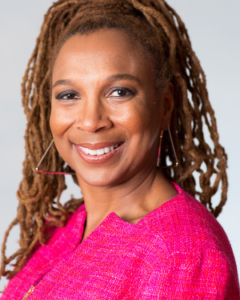 Kimberlé Crenshaw
Kimberlé Crenshaw
Cofounder and executive director of the African American Policy Forum and a professor of law at UCLA and Columbia Law School
What is your view on how COVID-19 is impacting women and girls from the lens of your work and perspective?
Over the past few weeks, as COVID-19 has moved from a fear-producing unknown to an era-defining terror, we’ve seen mainstream media coverage that mirrors the failures of our healthcare system; there has been a shift from utter blindness to the role of identity in shaping a crisis, to the purported inevitability of disproportionate impact.
While the media has grown better at highlighting that there is a functional frontline of this pandemic, we’ve not yet seen widespread recognition of the demographics of that frontline. Women hold 76% of health care jobs in the United States, and are also far more likely to be domestic workers and service workers—two segments of the workforce most impacted by the economic disaster that’s accompanied the “natural” one. A dramatically outsized number of these workers are women of color. The import of this intersectional identity-consciousness is only underscored by the fact that while men are more likely to contract the disease, it’s Black men that are in the most precarious position. We need specificity in order to see the toll that coronavirus is taking.
The particular necessity of a discourse that acknowledges the gender dimensions of this crisis becomes even more painfully apparent when we begin to anticipate the increased rates of household abuse. Upticks in the abuse of children and spouses are disproportionately disastrous for women and girls. This is not to say that men are not afflicted by these heart-wrenching realities, but is instead to note the specific vulnerability of women and girls. It also underscores that even decisions that seem abstract and identity-flattening —like the closing of schools—produce identity-defined externalities. As a New York Times piece on the coming epidemic of child abuse highlighted, “Educators are the primary source of reports (20%) to child protective services nationwide.”
Thus, while many of the gendered consequences of COVID-19 are yet to become measurable, there are clear signs that we will see sexism rear its ferocious head both in the midst of the crisis, and in its aftermath.
What do you think is needed to address these issues and create change?
Over the course of my career, I’ve tried to convey intersectionality as a frame: as a way of seeing things not seen because of our limited conceptions of the world. I’ve continued to press for intersectionality’s urgency because during so many of our most dire moments I see that when facts don’t fit our limited frames, people can’t hold onto facts. This leads to the effortless erasure of things that may be central to our understanding of a problem. Stated in its simplest terms, if we cannot properly identify a problem, we cannot find a solution.
Thus far, our societal response to COVID-19’s disastrous effects has thrown our general framing issues into sharp relief. Perhaps most notably, our governmental response has been entirely void of any sort of gender or racial consciousness. The result? In the past week we’ve seen statistics trickle out that show this disaster’s disproportionate impact on people of color, and Black and Latinx people in particular. This was predictable—it traces the history of tragedies that debilitate the marginalized, and are considered resolved when the most privileged return to the status quo (i.e., the Great Depression, Hurricane Katrina, and the 2008 Recession).
In order to create meaningful change, we need to start by encouraging awareness, noticing who is both essential but also apparently disposable. We need to ask what sort of jobs and living circumstances force those people into impossible choices of either working in ways that place them and their families at risk, or forgoing work to secure against disease only to become vulnerable to societal and economic consequences. So start with history, and move through a response that doesn’t just mitigate disaster but challenges its pre-conditions. Perhaps, in that sense, my best advice on what we can do is to be generous with conversation, resources, solidarity, grief, and courage.
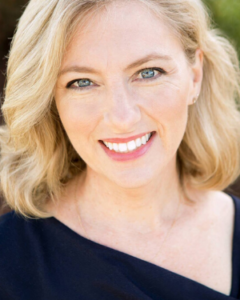 Kristin Rowe Finkbeiner
Kristin Rowe Finkbeiner
Executive Director/CEO & Cofounder MomsRising
What is your view on how COVID-19 is impacting women and girls from the lens of your work and perspective?
COVID-19 is shining a bright light on the already devastating discrimination and lack of workplace protections that women and moms, particularly women and moms of color, faced each day before the pandemic which are now catastrophes for too many.
We weren’t in a great place before the pandemic began. Women and moms, and in particular women of color and low-wage workers, were already incredibly vulnerable going into the COVID-19 crisis due to rampant wage and hiring discrimination and a lack of workplace protections that most other countries take for granted like earned sick days, paid family/medical leave, unaffordable and inaccessible childcare, a patchwork healthcare system that leaves millions without coverage and without access to the care they need, and a low minimum wage. In fact, two-thirds of minimum wage workers in our nation are women, many of whom are moms—and 70% of low-wage workers couldn’t earn a single paid sick day going into this pandemic.
So while women and moms—and particularly women of color—are working right now to save our communities in essential healthcare, grocery, and other frontline positions, they were also already disproportionately impacted and at risk due to pre-existing discrimination and widespread absense of workplace protections. We can see this in the March 2020 Bureau of Labor Statistics report, which shows the unemployment rate of Latinas and Black women rising the fastest. We can also see this in the fact that the biases in our healthcare system are now compounded by the pandemic in communities of color—particularly Black, Native and Latinx communities—which are experiencing disproportionately adverse health outcomesdue to COVID-19. And we can see it in the fact that the unpaid work of caregiving, which has increased during the pandemic due to many schools being out with state stay-at-home orders and many seniors at heightened risk, is now largely falling on the shoulders of moms—who now comprise more than half of our nation’s primary breadwinners.
We have a lot of work to do as a nation and as a movement.
What do you think is needed to create change?
Right now, we at MomsRising are all hands on deck fighting for women and families during the pandemic. It’s an emergency. Families are suffering. So we’re fighting to fill in the gaps in our national and state policies that are devastating women and families right now. That includes fighting to advance long needed policies like access to paid sick days and paid family/medical leave for all and for always, not just during a pandemic. (We’ve made some progress in these two policies during this public health emergency, but not everyone is covered yet and the policies sunset, so we’re committed to persistently fighting forward until we get to universal coverage.)
We’re also fighting to lift childcare workers and the entire childcare system, which is now in danger of collapse due to the pandemic. Boosting our nation’s unemployment insurance structure is also key, as is getting healthcare coverage for everyone. Protecting immigrant families, incarcerated loved ones, and our democracy so that everyone who wants to vote in November can vote are also key emergency priorities right now.
We’re also getting information out as fast as possible about how people can get emergency supports as new policies pass. So I encourage people to check in at the MomsRising blog for how-to instructions on things like getting healthcare if you were just laid off, accessing the new national emergency paid sick days and leave policies, and getting the best unemployment benefits for your family.
MomsRising also has the big picture and the long-run in mind with an eye on ending discrimination and builiding a nation where everyone can thrive. We know that when women win, our nation wins. That when women thrive, our economy, families and businesses thrive. And we also know that it’s going to take our voices, your voices, raising both the contributions and needs of women to leaders and the media to get to solutions that lift us all.
These fights are going to be marathons and not sprints. But one thing we know: together we are a powerful, persistent, and change-making force. And our power and voices are needed more than ever before because we’ve clearly seen from this pandemic that changes can happen quickly when the will is there. We must be the wind beneath the will to change our nation for the better, and not just for now, but for always.
 Ana Flores
Ana Flores
Founder and CEO of #WeAllGrow Latina Network
What is your view on how COVID-19 is impacting women and girls from the lens of your work and perspective?
My day to day is connecting with and elevating Latina small business owners, creators, freelancers and self-employed. That’s the community I belong to and know well. From that lens, it feels devastating and so frustrating when I think of the incredible cultural and socioeconomic impact Latina women were having in this country. According to Nielsen, Latina majority-owned businesses make up 44% of all Latinx-owned businesses and 15% of all female-owned ones. That’s 1.9 million Latina-owned businesses.
But the caveat to this is that less than 1% of our businesses ever hit the million-dollar mark. That means that there exists a well-known equal pay gap with Latinas at the bottom of the totem pole, but our businesses are also sorely lacking in funding and access to capital.
During this crisis, those entrepreneurial Latinas are the most at risk and it’s going to take us a long time to recover from this and get back to the level of progress we had achieved.
This needs to alarm all of us, not just the Latinx community, since we are the new majority and major contributors to the economy.
What do you think is needed to create change?
An authentic and focused effort to provide resources, funding, support and exposure to Latina-owned businesses. The support doesn’t only need to be financial, though that’s the most imminent right now; we need access to mentorship and mental health resources, as well as visibility via allyship.
 MarySue V. Heilemann, PhD, RN, FAAN
MarySue V. Heilemann, PhD, RN, FAAN
Associate Professor, UCLA School of Nursing and Associate Director, UCLA, National Clinician Scholars Program
What is your view on how COVID-19 is impacting women and girls from the lens of your work and perspective? And what is needed to create change?
My answer is based on my work as a professor, researcher, and mentor of graduate students in nursing, social welfare, public health, and postdoctoral scholars in medicine at UCLA. The COVID-19 pandemic is amplifying the structural inequities in American society. Examples abound. There is no mystery here. Simply a reflection of what is and has been. Today we are seeing that COVID-19 is disproportionately killing African Americans, including women, which sends a powerful message to all of us, most especially to African American girls. Since race and ethnicity are not biological concepts, why is this the case? In fact, rates of chronic diseases including hypertension, obesity, asthma, and cancer are higher for African Americans in the US than for other ethnic groups. So if this is not due to biology, why is this happening?
Structural racism of many types has persisted in America, damaging the likelihood of health especially among African Americans. Let’s just focus on asthma for example. As Representative Alexandria Ocasio-Cortez has pointed out, families of color, often headed by a woman, often have no other choice but to live on land with poor air quality near airports, dumps, truck throughways, or industrial zones due to environmental racism. Poor air quality leads to asthma and chronic respiratory diseases—deadly maladies especially in relation to COVID-19. Lack of appropriate access to effective and desirable health care for African Americans is an understudied and misunderstood problem in the US. The alarmingly high rate of maternal and fetal mortality among African American women and their infants should shock us all; it warrants investigation and scrutiny well beyond biology.
The world that emerges post COVID-19 must face the realities highlighted by the pandemic itself, including the effects of racism on health. Pretending our systems, even our health care systems, do not perpetrate racial and ethnic inequities only compounds the problems. We need to listen to the brilliant health services experts who have identified inequities in our health systems and support change.
 Michelle Nunn
Michelle Nunn
President and CEO of CARE
What is your view on how COVID-19 is impacting women and girls from the lens of your work and perspective?
Without question women and girls are at increased risk of gender-based violence. Evidence from the Ebola outbreaks suggest that sexual exploitation and abuse incidents increase during public health emergencies. In just the last few weeks, we have also already seen increases in reporting of gender-based violence in countries like China, Spain, France, the United States, and many others. When schools in Sierra Leone were closed for nine months during the Ebola outbreak, an estimated 18,000 teenage girls became pregnant as they were more vulnerable to sexual assault during the quarantine. In this crisis, support services for those facing domestic abuse are expected to decrease at the exact same time that stay-at-home orders and quarantines are increasing.
Second, women are often employed in the kind of informal work that’s most affected by these crises. In Kenya, the government closed open air markets to prevent crowding in public spaces, which has an adverse impact on women who are employed in markets. Women also carry out nearly 75% of informal cross-border trade in East Africa, which will be affected as countries such as Uganda and Rwanda have closed their borders.
When food becomes scarce, women and girls are the first to feel it and are often among the first to go hungry. In Ghana, schools have been closed due to the coronavirus pandemic, disrupting the government’s national feeding program which served meals to more than 2.6 million children across the country. Girls, who are already more likely to be malnourished, could face additional health complications.
Finally, women comprise about 70% of the global health care workforce and carry out at least two-and-a-half times more unpaid household and care work than men. That means they are caring for sick patients at health care facilities during the day and then caring for their parents, spouses, and children at home at night.
As COVID-19 spreads rapidly around the world, we need to consider the gender implications both short and long term.
What do you think is needed to create change?
There is a lot we can do, but we need to get out ahead to flatten the curve in low-income and middle income countries while we still can. We absolutely need to strengthen basic health infrastructure. We learned from the Ebola outbreak in West Africa how heavy a toll a pandemic can take on the health care workforce when providers don’t have adequate protective gear or aren’t trained on protective protocols: one out of 10 providers treating Ebola there died from the disease. Protecting our frontline staff and ensuring they have what they need to succeed is of paramount importance. At CARE, we are organizing capacity-building sessions for medical team members directly involved in coronavirus preparedness, prevention, and response in the West Bank and Gaza, including physicians, nurses, and community health workers, as well as custodians on general hygiene measures. And that is just one example of 50 plus countries where we are responding.
We also need to ensure local women leaders have a seat at the table. Women are the vanguard of community resilience and will be the lynchpin in this fight. Why? Because in communities around the world, women are the glue: they care for their children and often their aging relatives, manage the household, support each other, and their farming or shop-keeping earns the daily income that translates to the nightly meal. In Sri Lanka, for example, women business owners are coming together to devote their time and resources to prevent the spread of the coronavirus. These women were able to not only help combat the virus, but also keep their staffs—many of them women-headed households—working.
We also need to urgently combat the “infodemic” of misinformation. The Ebola and Zika battles taught us that community trust made the difference between life and death: trust of information and acceptance of those offering guidance. Social media can be an important route to information and how-to videos; it can also be a source of misinformation and dangerous theories. We’re mobilizing community volunteers in places like Nigeria, Haiti, and Nepal to go door-to-door with important facts and guidance to help prevent, respond to, and mitigate outbreaks. We’re also translating World Health Organization guidance into local languages and supplementing written materials with radio and social media posts.
Ending this pandemic is going to take all of us. We all need to follow the guidelines to stop the spread. It will take our collective leadership, including encouraging US and European government response to include additional funding for prevention and response in the world’s most vulnerable places. And it will take financial support from individuals, foundations, and corporations, many of whom are already answering the call. We are working with trusted partners on the ground to assess what is needed at the country and community level, and tailoring programs to the need. We won’t succeed without a response that is both local and global.
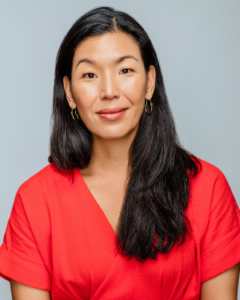 Ai-jen Poo
Ai-jen Poo
Executive director of the National Domestic Workers Alliance, co-director for Caring Across Generations and a cofounder of Supermajority
Coronavirus is compounding the enormous pressure that women are already under every single day. Almost two-thirds of all minimum wage workers in the US are women (BLS), meaning that most of the workers in the most vulnerable parts of our economy are women. Simultaneously, women are performing unpaid work that their families rely on: caring for children, caring for family members and loved ones who need care due to age, illness or disability, and caring for the home. Women return home from work to begin more work—care work—that isn’t recognized in the economy, and now that pressure is being enormously compounded by school closures and homeschooling, family members who are elderly needing support as nursing homes are closed due to coronavirus, and loss of wages as the US economy faces its greatest unemployment crisis since the Great Depression.
Women make 54 to 82 cents for every dollar that a man makes (AAUW); women provide the majority of caregiving—about 66% of caregivers are female and they may spend as much as 50% more time providing care than male caregivers (National Center on Caregiving); and women hold about two-thirds of all US student loan debt (AAUW). The economic pressure on women was already critical before the coronavirus crisis began stripping the economy of jobs that were unable to be done from home, as in the case of most minimum wage jobs. Women were already under the pressure of performing in their undervalued paid work before going home to their unpaid work, and they are now facing the loss of their underpaying jobs or continuing to go to work as essential workers with the knowledge that they are putting their health at risk, and the health of their families, by not staying home.
Imagine a world where a woman’s work—all of her woman’s work—is valued for the contributions she is making to our society, to our economy, and to the lives of the people she keeps safe and cared for. Imagine the resilience of an economy that values women’s work equally to what men do and compensates caregiving work as a critical function our society relies on. Imagine the strength of a society where rather than rendered invisible, care was seen as the foundation that our economy must be built on in order to thrive. This is the world that we must create together.
As hard as it is to picture right now, when we reach the other side of this crisis, we cannot rebuild with the goal of returning things to “normal,” to the way things have been. We must create a new normal that values women’s work, that protects the workforce of workers doing work that was traditionally done by women, and we must support our caregivers, whether they are professionals or family. Our future economic and social resilience relies on it, and the generations coming after us deserve it.
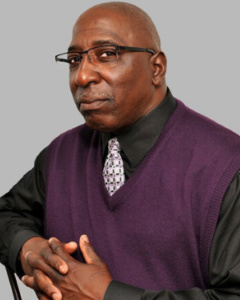 Tony Porter
Tony Porter
Chief Executive Officer of A CALL TO MEN
We are seeing serious impacts to men’s physical and mental health that is impacted by their collective socialization. The data is showing that men are contracting the virus more than women, and dying from it at higher rates than women. While there is still so much to learn, experts are pointing to high risk behaviors like smoking, drinking, and general poor health choices. Men have been socialized to avoid showing vulnerability at all costs, never to ask for help, and to devalue the voices of women.
These “Man Box” traits are dangerous all the time—they have serious mental health implications—and they’re even worse right now during a global crisis. Men who report having traditional views of masculinity are less likely to get consistent health care. More than 40% of men don’t go to the doctor at all unless they have a serious health issue, and when they do go to the doctor, men are less likely to be honest with their doctor about their health history and current symptoms.
In the short term, it’s really important that we are actively trying to identify the ways that the Man Box is showing up in our lives, especially in times of crisis, and some practical ways to respond. We are encouraging men in our community to listen to the experts, ask for help if they need it, share how they are feeling, and be a leader and a teammate in their homes and communities. Looking further ahead, we have to continue to let men and boys know that their ideas about manhood (and women and girls) have been shaped by their collective socialization. Our job is to raise men’s and boys’ consciousness about their collective socialization so that they can think critically about how they might be reinforcing or passing on these harmful beliefs and so they can challenge those beliefs in other men.
Another important part of this conversation is acknowledging that so many in our communities— women, girls, LGBQ, trans and gender non-conforming folks, everyone facing multiple forms of oppression—are facing increased risk. Research shows that unemployment and economic uncertainty are directly related to an increase in men’s controlling behavior toward their partners. And that there is a spike in domestic violence incidents and homicides during times like summer or the holidays when children are out of school, increased financial strain, or at times when weather keeps families indoors. We are experiencing all of these factors—and more—right now so we must be extra vigilant as we seek to understand these issues and develop a comprehensive community response.
Again, all men can play an active role in preventing violence against women and girls. Be an active bystander if you hear or witness demeaning or discriminatory behavior toward women or girls. If you know someone is in an abusive situation, check on them more than usual and ask if or how you can help.
Listen to your family and community members—especially any children in your life. We are navigating unprecedented times and everyone is processing new levels of uncertainty and constantly evaluating risk. Validating each other’s feelings and experiences is very important. This situation calls for more—more love, more grace, more understanding, more compassion, more patience—than we are used to giving.
 Kavita Ramdas
Kavita Ramdas
Former president of the Global Fund for Women,; Director, Women’s Rights Program, Open Society Foundations
What is your view on how COVID-19 is impacting women and girls from the lens of your work and perspective?
This COVID-19 pandemic is a care crisis—not just a health care but a care crisis. It is revealing how dependent the world is on caregivers and careworkers—those are disproportionately women and girls, whether in fancy middle class apartments in New York City or in refugee camp tents in Coxs Bazar, Bangladesh. The burden of caring becomes much harder when people are sick, when children are home, when old people are vulnerable, when men are out of work and home, when everyone needs to be fed and taken care of—this is escalating and increasing burdens that are already heavy on women and girls
Carework is relentless—it does not let up, and all other work depends on it, as we are learning from this crisis. Essential workers are not billionaire CEOs—they are janitors, nurses, home health care aides, domestic workers, teachers, teacher aides, childcare workers, nannies, maids and others. Without them, nothing else can happen. The world needs care, and women and girls provide it, often for free, but even when it is paid, it is paid poorly and inadequately.
The spike in domestic violence and abuse of women is also worrying. When things go awry for men at work, it is almost inevitable that it is brought to bear on domestic partners. Unemployment has long been correlated with increased violence against women and children. A lockdown or stay-in-place order puts women and children at risk. Home is not a safe space for millions of women and girls across the globe—it is a place of terror, of violence and potential murder. Recently even the UN Secretary General made a global appeal for us to recognize this challenge during COVID-19 and how best governments and civil society organizations can respond to this need.
This care crisis is being positioned as a war against the virus. The second that male leaders frame a crisis as a “war,” women disappear as experts—from the TV screens, from print media, from expert podiums—for it is men who know about war, they are the generals and warriors. So it is an easy thing to miss, but it always diminishes the power of women’s voice and influence. As Arundhati Roy said, in “The Pandemic Is a Portal,” if this really was a war, you can bet we would not be out of submarines, fighter jets, or nukes.
Women are also paying a much higher price in terms of who is losing jobs and being laid off and who is more vulnerable in this economy. Women across the globe are concentrated in the informal and service economies and are rarely protected by legal or formal arrangements. When their employers stop paying them, they simply stop—few if any of them are unionized or have recourse to collective bargaining. Their loss of livelihoods, in turn, will have an immediate impact on the nutrition, health and education levels of children.
Finally, the COVID-19 crisis is being used by authoritarians to push a right wing undemocratic playbook—from the US to Hungary to India to Israel. Journalism, dissent and protests are all silenced in the name of the pandemic, but also women’s reproductive rights and issues related to gender and sexuality are being deemed unessential, not important and irrelevant. Thus women’s access to abortion services is being curtailed across the US in various states (so as to fight the pandemic!) or being deemed non-essential. Similarly, access to birth control or prenatal care, or any pregnancy related care, is at risk. We know that power over our bodies is critical for us to have power in the body politic, so this is another area of concern.
What do you think is needed to create change?
We need more feminists in power. Elected leaders like Jacinda Ardern are making a real difference in their societies’ abilities to respond to crises—whether those are terror attacks or pandemics. We need to have governments run by decent, caring and honest elected officials; women are much more likely to fit those descriptions, but we need feminists of all genders to step up and run for office. Good government matters. We need an effective, caring and concerned public sector that takes on challenges like pandemics, offers the social protection of universal health care and invests in forward-looking infrastructure.
We need more investments in a Feminist Economic Future. Capitalism is failing us on the ground—it does not protect workers, it does not protect the planet, it does not protect our health. We need to invest in the alternative forward-thinking options—too little money goes to support building new inclusive feminist theoretical frameworks. We need to be supporting more women economists and scientists and organizations like IAFFE (International Association of Feminist Economics), and we need to support the teaching of feminist economics at universities around the globe.
We need new MacroEconomic Policies that value CARE. South Korea and Argentina are two countries that are placing CARE at the center of their new macro-economic policy frameworks. Argentina just appointed a position in the Ministry of Finance called Gender and the Economy. This is exciting stuff and could make all the difference.
We need to strengthen the collective power of careworkers—invest in unions like National Domestic Workers Alliance in the USA and the International Domestic Workers Federation. Strengthen women’s voice in other sectors of the informal economy—investing also in groups like WIEGO, Women in Informal Employment: Globalizing and Organizing.
Pass the ERA in the USA and similar measures across the globe. The single biggest thing we can do to reduce poverty is to pay women equal pay for equal work and to offer them decent quality childcare that is subsidized and supported by the state (aka government).
Change our education systems. Teach gender justice and gender diversity and joy and pleasure in sex early to all children. Let sex come out of the closet of shame, fear, suppression, and ignorance—it would go a long way to addressing unplanned pregnancy, violence and abuse.
Lastly, support feminization of philanthropy. Strengthen and expand feminist funds like Global Fund for Women, Mama Cash, Ms. Foundation for Women, Astraea Fund, Groundswell Fund, Women’s Fund Asia, MADRE, FRIDA and others. Democratize the concentration of wealth by redistributing it to feminist public foundations.
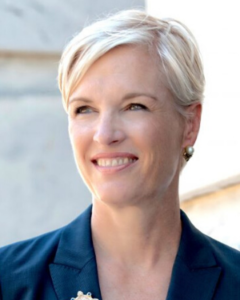 Cecile Richards
Cecile Richards
Author, cofounder of Supermajority and former president of Planned Parenthood
From the lens of your work, what are the ways that you think COVID-19 is having a specific impact on women and girls?
Well, I see it from a lot of different places, but I’ll just say two are so obvious. One is with our own staff, all of whom are women, many of whom are mothers of young children. And so you read the percentages, like 30% of people can now work at home, but there’s very little conversation of what that looks like, particularly for women who are now stuck at home. Their children no longer have childcare, are no longer in school, for the most part. They often have other family members at home all day with them.
And so what I have seen is these are women who are basically trying to take care of everybody, and then work until midnight and 1:00 a.m. So personally I have seen the disproportionate impact it’s had on women who tend to, as we know, pick up all the work.
But the issues that we are concerned about at Supermajority are really how do we get gender equity in this country, a lot of which is economic, and a lot of which is access to basic needs like healthcare. I’ve never experienced anything that has put a greater spotlight on the inherent inequity in the United States, and the fact that our economy and the business world and the working world was never built for women.
But women have somehow, just by hook or by crook, figured out a way to manage, even when they have no access to affordable childcare. They have unequal pay. They’re the first to lose employment. And that, under COVID, has been just so profound. I saw the numbers this week. I think now 18% of women report having lost their job, which is much higher than men. And of course for many of these women, since at least two-thirds of people that earn low wages in this country are women, these are women who lost jobs and who already were often living, as we say, paycheck to paycheck.
And so I believe what we are going to see, if we can sort of look ahead, as with every other economic downturn, women will be the hardest hit, and it will take the longest for them to recover. And thinking about just this inadequate access to healthcare, and of course the exposure of all of our frontline healthcare providers, three quarters of whom are women—I think it’s 86% of registered nurses in this country are women. So in every aspect of this pandemic, women are on the frontlines.
What do you think is needed to create change?
I think there are systemic things we need in this country. First and foremost, we need a commitment to equal pay—that regardless of your gender, you get paid for the work that you do. I mean, we all know the numbers, and of course it’s more profound for women of color, so much more profound in terms of unequal access to pay. We need maternity care and childcare that is available for everyone, regardless of where they work. And that’s something, as we know, businesses still consider maternity leave and maternity care as a nuisance rather than as fundamental to half of the workforce in the country.
We need paid family leave, like every other industrialized country, and we need paid sick leave. These are fundamental policy changes, and they can’t happen in a piecemeal way, which is what has happened. I think we’ve all kind of just pasted this together. And what we want from the next administration and what we want from the next Congress is to put these issues at the top of the list, not at the bottom of the list. Because they’re not only good for women. They’re good for families. They’re good for the economy. They have majoritarian support in this country. And again, I just believe this pandemic has exposed all of the weaknesses and the really systemic barriers that women face to make it economically.
 Rachel Thomas
Rachel Thomas
Cofounder of Lean In
What is your view on how COVID-19 is impacting women and girls from the lens of your work and perspective?
COVID-19 is an economic catastrophe for women, and that should come as no surprise to any of us.
The deck was stacked against women before this crisis started. Women are paid less than men. They have less savings to help them weather financial challenges. They are overrepresented in hourly jobs, which means they are less likely to have paid leave and health insurance. These numbers are worse for women of color. On top of all of this, eight in ten single parents in the U.S. are women. And this is all against a backdrop where four in ten Americans say they would struggle to pay an unexpected $400 bill.
Lean In has been doing research on how this pandemic is directly impacting women, and here’s some of what we’ve learned. Black women are twice as likely as white men to have been laid off, furloughed, or had their hours or pay reduced because of the pandemic. Employed women are nearly twice as likely as employed men to say they wouldn’t be able to pay for basic necessities like rent and groceries for more than a month if they lost their personal income – and Black women are more than three times as likely as white men to say this.
Sadly, as we get a better sense of how this crisis is affecting people, the numbers will likely show the same trend – that it’s worse for women than men, and it’s especially bad for Black women.
What do you think is needed to create change?
The COVID-19 crisis is shining a stark light on the need for economic equality and more safeguards to support people who are struggling. We need to raise the minimum wage and close the gender and racial pay gaps. We need to put a robust national paid leave program in place. And we need to make sure all Americans have access to quality health care.
To make this happen, we need people pulling in the same direction politically and socially. This starts with deeply internalizing what this crisis has laid bare – that women of color, and particularly Black women, are badly affected by financial downturns like this one; that the frontline workers we depend on to keep our lives going deserve better; that no one should have to choose between caring for their families and their work; that women regularly do two or three or four jobs, including running a home and raising kids, and their labor is severely under-valued.
It’s on us to remember what the pandemic has revealed about how much people are up against as they try to make good lives for themselves and their families. This crisis is teaching us a lot. Let’s not forget.
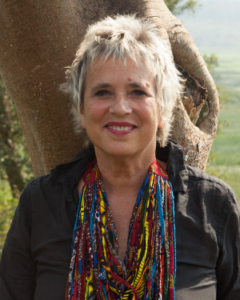 V (formerly known as Eve Ensler)
V (formerly known as Eve Ensler)
Playwright, activist, founder of V-Day and One Billion Rising
There is so much being revealed in this moment of the Coronavirus. The broken, unjust, unequal racist and sexist underpinnings of diabolical capitalism are on full display. We see how those workers, in many cases women, who are most essential, who are currently keeping the majority of us alive, are least respected, honored, paid, protected. We only have to look at our nurses and doctors, aides, janitors who each day are being thrown into the face of this highly contagious virus without protective masks, gowns, gloves. Seventy percent of healthcare workers are women so this treatment is tantamount to femicide. The fact that the federal government did not think in advance about the well-being of our healthcare workers— the notion that they are being forced to put their lives on the line with no protection, being told to wear garbage bags as gowns, bandanas as masks and pay for their own rooms when they quarantine to protect their own families—is an indication of the depth of the lack of caring and respect for those we need the most.
We treat the most essential among us as if they are the most disposable. This is the case with restaurant workers preparing takeout food, grocery clerks, domestic and home care workers taking care of children and the elderly, campesinas risking their lives to put food on our tables while they struggle to feed their own families, lack access to PPE are unable to practice social distancing in the fields. As COVID-19 rips across the globe leaving death and disparity in its wake, so many are called to #StayHome #StaySafe in the face of this deadly virus. But for countless essential workers, staying home is not an option.
Then there are the women workers who work with their hands, with touch. Their work takes place in the room with other people, not online or virtually. It’s healing, lifting, caring for, cleaning, cooking, doing hair, nails, makeup, or massage. How will these women survive? How will they make a living if we can no longer be near one another?
The tragic and enraging story being revealed in this moment is that essential workers are treated as expendable and so much of how we treat women workers breaks down across race, class, and identity impacting women of color, the undocumented and trans workers.
What change is called for? We, One Billion Rising, created a campaign in 2017 with a coalition of over 50 groups called “Women Workers Rising” that is ongoing today. It was built on the foundation that the fight for women’s rights must center the needs and voices of women workers, center the needs and voices of women in their workplaces, associations, and unions, especially women of color, immigrant women, and undocumented women.
What we need to do is ask ourselves, who is keeping us alive right now? It’s not the bankers, hedge fund managers or tech executives. We have to look deeply at the brokenness of systems that have been made visible by this pandemic and we have to use this time to change and bring in a new system of values. What is essential? Who is essential for our survival? And how do we pay them and protect them accordingly? Women workers are the backbone of our world and we must demand they have fair wages, free healthcare, paid sick leave, childcare, and education. We must demand they have the protective equipment to do their jobs safely. It will require a deep cultural and economic shift that honors, amplifies and values the essential work of all women.
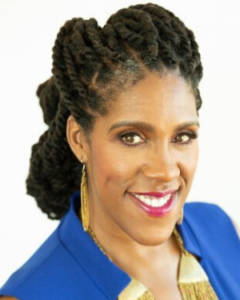 Teresa Younger
Teresa Younger
President & CEO of Ms. Foundation for Women
What women, particularly women of color, are facing right now isn’t new. For decades, women in the United States have been highlighting the social, political, and economic disparities that put our lives at risk every single day. The severely disparate impact of COVID-19 on women only exposes the already glaring gaps in the social safety net.
This is further complicated by our country’s blatant refusal to acknowledge the institutionalized racism and sexism that has created not only financial barriers but a culture that devalues the importance of the role of women in the workforce and in the household. While millions of people in this country work in at-risk jobs that already lacked safety protections and guarantees of stable hours and paid sick leave, women are disproportionately represented among the vulnerable workforce, accounting for 51% of these workers nationally.
To put that in perspective, about 30% of workers at hotels in 2019 were Hispanic, and another 19% were Black, according to the Bureau of Labor Statistics. Restaurants, bars, and other food services, which have been particularly hard hit, had 27% of workers last year who were Hispanic, and 13% who were black. These are all workers who cannot work from home and do not have the privilege of benefits or paid leave to buffer the economic impacts.
Around the country, the story is the same: women of color are the greatest impacted by COVID-19 and it will be their innovation, entrepreneurial spirit and reimagined solutions that will move us out of this crisis for their communities, their families and themselves.
Visit COVID Gendered for more articles, information and resources.
This article originally appeared at ForbesWomen.
Marianne Schnall is a widely-published interviewer and journalist and author of What Will It Take to Make a Woman President?, Leading the Way, and Dare to Be You. She is also the founder of Feminist.com and What Will It Take Movements.
